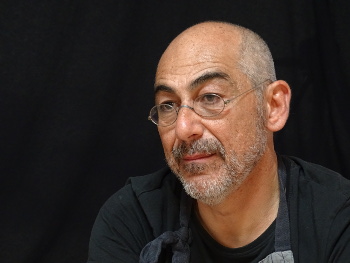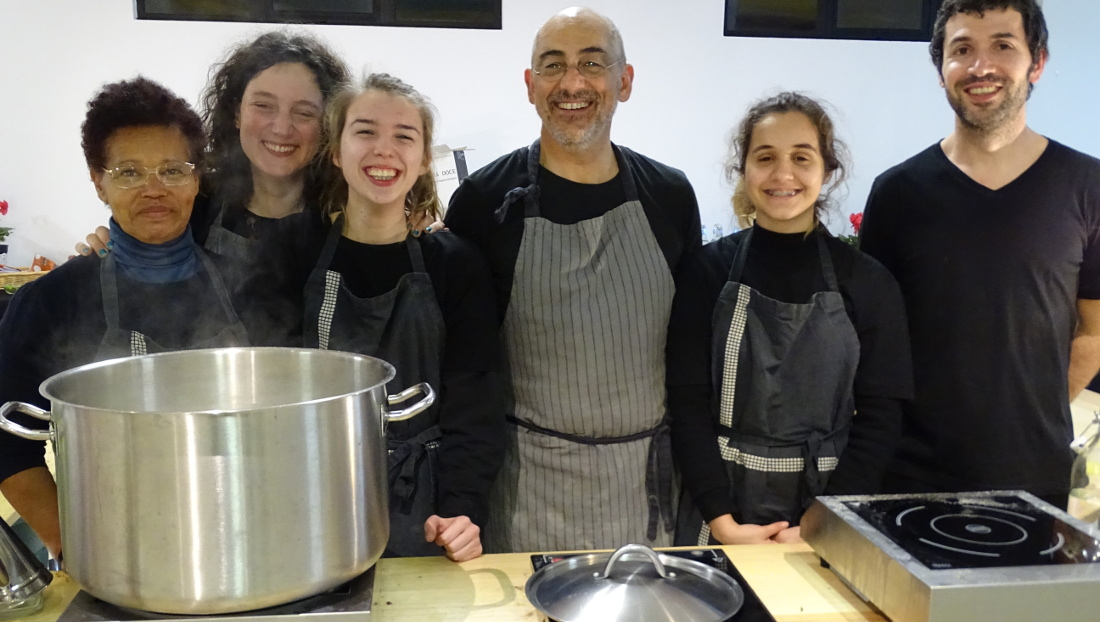Could culture survive without being dependent on subsidies? Giacomo Scalisi has been working for a number of years as an actor, artistic director and cultural programmer, and during his career he has worked on different projects, in different theatre companies and on the organisation of international festivals. In 1998, he came to Portugal to join the Centro Cultural de Belém (CCB) as a cultural programmer for theatre and new circus, leaving here in 2008.
At present he runs his own projects in the field of artistic production. This Portugal-based Italian recognises that culture depends on subsidies for its survival, but he says that the State is obliged to guarantee that its citizens have access to culture.
After all, could a symphony orchestra with some 80 members and a monthly salary of 750 euros per musician survive just from ticket sales? Or should we eliminate classical music from our lives?
ECO123: Thinking about circus and the concept of the clown, who earns a living with a smile, will we be turning a smile into an economic product?
G.S.: Clowns don’t only make people smile, they also make people think and they are people who have the freedom to provoke in all senses, from the political, cultural and ethical point of view. As a clown, you can say everything, which can later leave a very profound mark on every individual.
What is the current outlook for culture? Does it depend on subsidies?

It is important to clarify the differences between culture and entertainment. Entertainment is a way of producing shows. It is about entertaining people with products that are often commercial and which, on their own, can pay for the investment made in them. We are talking about Cirque du Soleil, theatre on ice or major concerts. Talking about culture is something different: it is essential and compulsory, it’s not just entertainment, it is training, and helps people to live better, to construct a different society. It is essential that this type of activity is financed by the State in Portugal. It is like school, which is used to create basic education in society, or health. Culture is on the same level. It is not sad to be dependent on support and subsidies. It is not an act of charity, the State is obliged to finance artists so that they can create and enable people to have access to culture.
It seems to be something of the ‘culture of subsidies’, can it still continue to be an independent and free culture?
The fact that culture is financed by the State doesn’t mean that it is dependent from the artistic and creative point of view. They are projects that cannot exist just from ticket sales, only if they have the conditions to attract big audiences, but then we’re moving into the field of entertainment. Circus was entertainment, but the traditional form is an art that has almost disappeared, which is part of a very important collective memory. Despite the issue of the animals, circus should have support to keep going. Traditional circus itself is changing. New circus is something different, it is closer to performing arts and it encourages research into the different kinds of communication that the art can offer and that are introducing innovations to the very language of artistic creation.
Can culture function without subsidies, or not?
We saw a cut in subsidies in Portugal, which left all artists on their knees, and some ceased to exist. One of the big problems in Portugal is that when the money from Europe runs out, projects come to an end, the councils don’t have any money, but sometimes there’s also a lack of will. Culture needs subsidies to exist, but we are also used to looking for other types of funding. This could come from companies, although this is not a culture that exists in Portugal. In Canada, for example, companies contribute a lot to culture. It is a possibility that exists.
Is it out of the question for culture to be financed by the public?
It is important for culture to be financed by people, and new forms of financing are appearing, such as crowdfunding. Tickets are paid for and this helps to have a starting fund for productions. There is one very serious issue in Portugal. Shows are created with a huge investment and then there are no conditions for touring, either nationally or internationally. There are few support programmes for international activity and at the national level there is almost no possibility of making all the work that is done cost-effective. It is a bit circular. If the theatres and the councils have no money, if they don’t have programmes, they cannot include the companies in their programme, and if the companies aren’t programmed, they have no money. They put on productions, present one, two, three or four shows and die. Then they have to start a new production.

And what if the companies themselves created these tours?
The companies are trying, and there are some that succeed. For example, Miguel Seabra’s Teatro Meridional has a tour that is national and sometimes international, which is a reference point. Tiago Rodrigues, at the Teatro Nacional, also does tours around the country. There is a series of mechanisms that are being implemented, but it’s not easy.
Imagine that the subsidies stopped today, what would you do to continue with your artistic productions?
There is no alternative culture to subsidies. In Portugal it’s not possible, you can’t do a tour with thirty dates. If, as an artist, I go to a company and say that I want to create a project, they won’t provide any support. I can work without any money and then try to sell the show, but if I don’t succeed it is an investment with zero return. You can put on productions in shopping centres, or soap operas, and you can survive on the money that doesn’t come from culture but from entertainment. And then they do shows and invest the money there that they earn in other ways in their own company. There are many actors who do that.
Are there reasons for culture to smile in Portugal?
Culture never smiles a lot, and it never could. Culture follows the events in society and at the moment there are not many aspects to be happy about. I am talking from the political point of view, internationally and nationally, of what are the dominant issues in society. Our society is dominated by economic power. For example, in the Algarve they are trying to find oil in the sea, when energy from oil should be replaced by other types of energy, which are the future. There is a possibility that natural paradises will be contaminated. What counts at the moment is a question of power and money, which is often contrary to the life that people lead.
Could the UBI be one way to give people greater purchasing power, which they could possibly spend on culture?
I think that could be an interesting proposal. It gives people dignity, it gives the most defenceless people the possibility of having the minimum conditions and helps the most fragile stratum of society. I think that culture can benefit too.
Is a public with no purchasing power a limiting factor for culture?
We live in a very poor society: most people are living on the brink of poverty. Even the middle class is impoverished. There are people who only manage to go to one show a month, or every six months, and when they have to choose a show they prefer something they already know, because it’s just one. They prefer to spend 30 euros a year to see Cirque du Soleil than to spend money on four shows of new circus that they don’t know. It is difficult to imagine a culture that lives like that because the whole of society lives in this way.
Why invest in culture? What is its power?
Culture has a lot of power and the messages it can convey are fantastic. It can have a direct connection to society, giving people the possibility of using their own heads to think, to have pleasure which is not just laughter, but to start to think about life, about their relationship with their children, about the family, about society. Culture is a player that can enter society and try to modify it for the better. There are studies that show that countries where people attend cultural events frequently have a series of benefits, not only in terms of health and happiness, but also or psychologically.
Thank you.
 Eco123 Revista da Economia e Ecologia
Eco123 Revista da Economia e Ecologia


